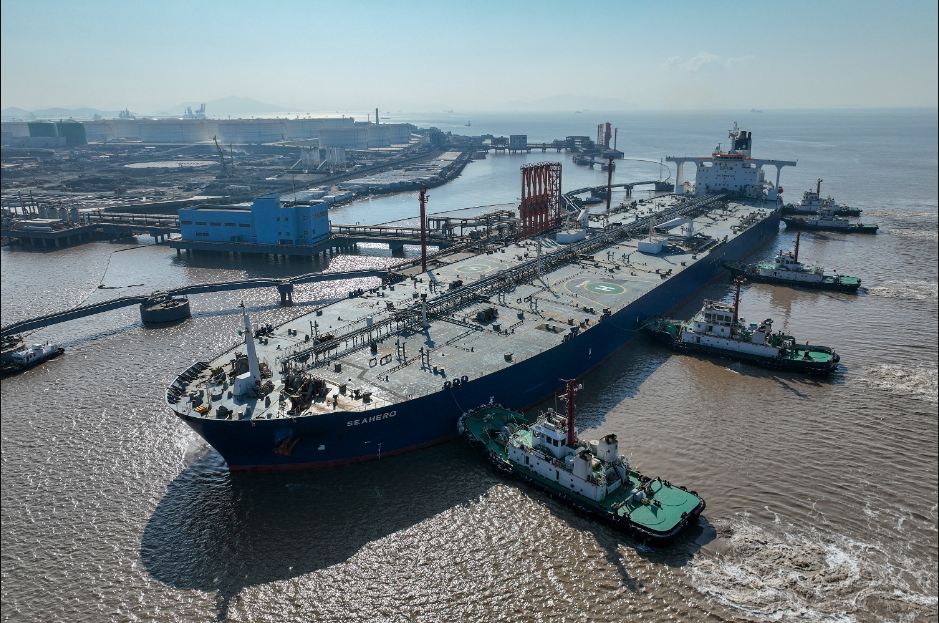Brent retreats ahead of OPEC+ oil production decision
Beijing (Reuters) – Brent crude futures edged down on Friday, extending losses from the previous session, as traders speculated on whether OPEC+ would come to an agreement on further production cuts.
Brent crude futures inched down by 6 cents, or 0.07%, to $81.36 at 0400 GMT, after settling down 0.7% in the previous session.
U.S. West Texas Intermediate crude slid 66 cents, or 0.86%, to $76.44, from its Wednesday close. There was no settlement for WTI on Thursday as it was a U.S. public holiday.
Both contracts are on track to mark their first weekly rise in five, supported by expectations that OPEC+, led by Saudi Arabia, could reduce supply to balance the markets into 2024.
The Organization of Petroleum Exporting Countries and allies, together known as OPEC+, surprised the market with an announcement on Wednesday that it would postpone a ministerial meeting by four days to Nov. 30, after producers struggled to come to a consensus on production levels.
“The most likely outcome now appears to be an extension of existing cuts,” Tony Sycamore, a Sydney-based market analyst at IG, wrote in a note.
The surprise delay had initially brought Brent futures down by as much as 4% and WTI by as much as 5% in Wednesday’s intraday trading.
Trading remained subdued because of the Thanksgiving holiday in the U.S.
The near-term Chinese outlook appeared stronger, supporting market sentiment.
“The recent Chinese data and fresh aid to the indebted properties can be positive for the oil market’s near-term trend,” said Tina Teng, a market analyst at CMC Markets.
Chinese stocks rose on Thursday amid expectations that China would direct more stimulus to the struggling property sector.
Yet those gains may be capped by higher U.S. crude stockpiles and poor refining margins, leading to weaker crude demand from refineries in the U.S., analysts said.
“Fundamentals developments have been bearish with rising U.S. oil inventories,” ANZ analysts said in a note.
China’s longer-term outlook is lukewarm. Analysts say oil demand growth could weaken to around 4% in the first half of 2024 from strong post-COVID growth levels in 2023, as the country’s property sector crunch weighs on diesel use.
Non-OPEC production growth is set to stay strong with Brazilian state energy firm Petrobras planning to invest $102 billion over the next five years to boost output to 3.2 million barrels of oil equivalent per day (boepd) by 2028 from 2.8 million boepd in 2024.



